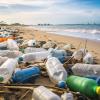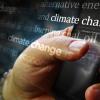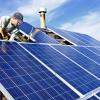
A new grant from the European Research Council (ERC) will fund an international research project on negative emissions technologies. IIASA Energy Program Director Keywan Riahi is one of the project leaders.
The most recent UN climate agreement aims to keep global temperature rise well below 2°C. To achieve this target, negative emissions technologies, such as greenhouse gas removal are critically important since they can capture carbon dioxide (CO2) from the atmosphere. Another significant technology is solar radiation management, a type of climate engineering in which sunlight is reflected to limit or reverse global warming.
The research team of the GENIE project (GeoEngineering and NegatIve Emissions pathways in Europe), funded by an ERC Synergy Grant, aims to identify how, where, and when to use these technologies effectively. The intention is to generate a robust, scientific assessment of the risks and benefits of these options for evidence-based policymaking.
Most research on greenhouse gas removal and solar radiation management addresses techno-economic aspects but rarely examines their social, legal, political, and ethical dimensions. The new project will address this gap and provide an urgently needed interdisciplinary and holistic perspective of these and other technologies, in order to understand whether and how they could be deployed at the required scale to solve the problem.
“The aim is to bring social science into energy system models. We want to understand and include soft factors, such as public perception and social learning which are underrepresented in current integrated assessment models.”, explains Riahi. “Utilizing our expertise in systems analysis - the project can shed light on how soft factors interact, and how they can enable or hinder the transition to climate neutrality.”
Riahi will combine forces with energy policy expert Benjamin K. Sovacool from Aarhus University, Denmark, and environmental economist Jan C. Minx from the Mercator Research Institute on Global Commons and Climate Change (MCC), Germany, to make a strong contribution to not only climate and energy research, but also to national and European policy. The project owners are also leading authors in the current production of reports from the Intergovernmental Panel on Climate Change (IPCC).
“We have very little time to achieve the goals set in the Paris Agreement. As climate impacts, such as increased heat, droughts, or flooding, occur more often and are more severe, now is the time to identify how we can transform the system, and evaluate all risks,” concludes Riahi.
Research partner: European Research Council
News

28 June 2024
Drowning in waste: pollution hotspots in aquatic environments

27 June 2024
What can social media tell us about public views on climate change?

21 June 2024
